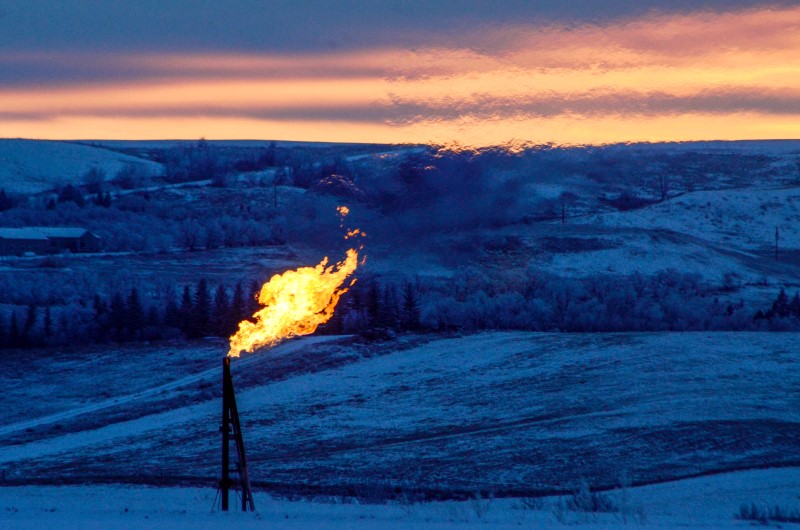Investing.com - Natural gas futures edged lower on Tuesday, retreating from the prior session's two-week high amid speculation the end of the winter heating season will bring warmer temperatures throughout the U.S. and cut into demand for the fuel.
Front-month U.S. natural gas futures shed 1.5 cents, or around 0.6%, to $2.671 per million British thermal units (btu) by 9:35AM ET (1435GMT). It rose to $2.723 in the last session, its best level since Feb. 9.
The commodity notched a gain of 1.1% on Monday, as updated weather forecasting models showed a return to colder weather over the eastern U.S. during the first week of March.
Despite recent gains, market experts warned that futures are likely to remain vulnerable in the near-term as the coldest part of the winter has effectively passed.
Natural gas prices are down nearly 22% since late January amid speculation the end of the winter heating season will bring warmer temperatures throughout the U.S. and cut into demand for the fuel.
Spring usually sees the weakest demand for natural gas in the U.S, as the absence of extreme temperatures curbs demand for heating and air conditioning.
The heating season from November through March is the peak demand period for U.S. gas consumption.
Meanwhile, market participants looked ahead to this week's storage data due on Thursday, which is expected to show a draw in a range between 68 and 78 billion cubic feet (bcf) in the week ended Feb. 23.
That compares with a decline of 124 bcf in the preceding week, a build of 7 bcf a year earlier and a five-year average drop of 118 bcf.
Total natural gas in storage currently stands at 1.760 trillion cubic feet (tcf), according to the U.S. Energy Information Administration.
That figure is 609 bcf, or around 25.7%, lower than levels at this time a year ago, and 412 bcf, or roughly 19.0%, below the five-year average for this time of year.
